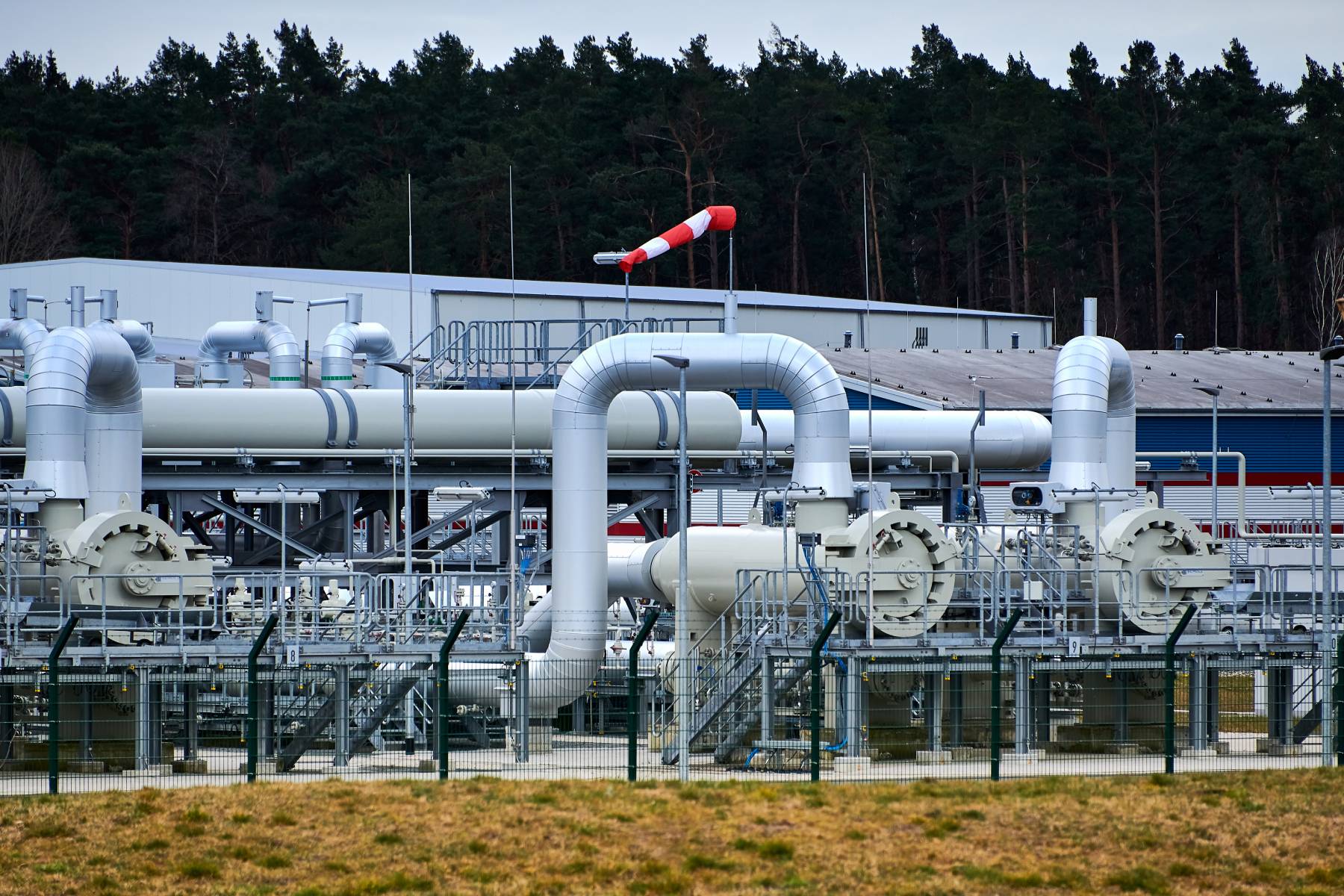The Energy-Security Nexus
The Russian invasion of Ukraine demonstrated the importance of diversifying energy supplies — with renewable sources.
This is an excerpt from RMI's 2022 Annual Report.
Read the full report.
When Russia invaded Ukraine in February of 2022, we, like the rest of the world, were shocked at the violence and human tragedy inflicted on the Ukrainian people. We were also aware that the crisis would shake up the global energy sector. One-fourth of Europe’s energy comes from natural gas, nearly 45 percent of which was imported from Russia.
With that in mind, RMI experts jumped to analyze the consequences of the Ukraine invasion for the energy transition and the climate, exploring topics such as how the war marks the end of the fossil fuel era and the promise of heat pumps to help Europe cut reliance on Russian gas.
Our experts on the matter include Oleksiy Tatarenko and Kingsmill Bond. Prior to joining RMI, Tatarenko — Ukrainian born and raised — founded and led a venture that piloted projects to reduce methane gas leakage in Ukraine. As an advisor to the Minister of Energy of Ukraine, Tatarenko also helped develop national and energy security policy. He now leads RMI’s Green Hydrogen Catapult, a joint initiative between RMI and the UN’s High-Level Champions for Global Climate Action, promoting the aggressive global adoption of green hydrogen.
In an appearance on NBC News — one of more than 15 interviews RMI conducted with international media on this topic — Tatarenko explained how European countries are trying to curtail their dependence on Russian gas. “What probably came as a surprise for Russia is how decisive and united Europe has become in its resolve to move away from that dependency.”
For Europe, this is a convergence of older paradigms around energy security with newer thinking on the energy transition, says Tatarenko. Governments now realize the importance of diversifying sources that supply their energy, and that can be done with renewable energy. “Energy security now equals energy transition and vice versa,” he says.
Kingsmill Bond, from Oxford, England, is an expert on the impact of the energy transition on financial markets. In his article titled “How Putin’s War Marks the End of the Fossil Fuel Era” he explains how Russia’s invasion of Ukraine means that global demand for fossil fuels has very likely peaked — for good. The 2022 article was one of our most read posts of all time, with some 9,000 page views.
Bond appeared on the podcast Outrage + Optimism, co-hosted by Christiana Figueres, the former executive secretary of the UN Framework Convention on Climate Change. “Now is the moment for us to actually go and do the very detailed work to get these technologies to the world,” Bond told Figueres. He was also highlighted in a New Yorker article by Bill McKibben about the importance of ditching fossil fuels in the face of climate change and the invasion of Ukraine.
According to Bond, it’s critical for RMI to analyze the invasion because we need to understand the impact of major drivers on energy. “Putin’s War is the largest supply-side shock since the Arab oil embargos and will have an enduring impact on the energy system because supply shocks increase efficiency and speed up the deployment of renewables,” he says. “And Putin’s supply shock has come at the same moment as renewables are cheap enough and large enough to matter, thereby hastening the peak in fossil fuel demand and the energy transition.”
Tatarenko and Bond, along with Amory Lovins, Jules Kortenhorst, and Sam Butler-Sloss, wrote an article about the dynamics accelerating the global sprint away from fossil fuels in the wake of Putin’s War. This article, "From Deep Crisis, Profound Change,” has 8,500 page views to date, and together with our other posts highlighted on RMI’s energy-security nexus web hub, established RMI as an authority on the topic of how Russia’s invasion of Ukraine is affecting the energy transition.
But for Tatarenko, the issue goes beyond analysis. “We have a moral imperative to become involved in the reconstruction efforts of Ukraine if the opportunity presents itself,” he says. “A lot of the industrial potential was wiped out in Ukraine, and there’s an opportunity to rebuild those assets to be energy-transition ready.”
Case study: Driving Massive Scale-Up of Green Hydrogen
GREEN HYDROGEN — a powerful energy source produced by splitting water with renewable electricity — took center stage in 2021 as an emerging solution to decarbonizing heavy industry and transport. And RMI was at the forefront of the discussion. At COP26, we launched the Green Hydrogen Catapult, a coalition of industry-first movers committed to growing renewable hydrogen production by fifty-fold within this decade. RMI’s Industries and US Policy programs provided initial advice to the US Department of Energy on how to invest $8 billion to develop regional clean hydrogen “hubs,” which connect hard-to-electrify industries such as steel and fertilizer to green hydrogen projects. Hubs will be crucial to reducing emissions from industry and promise to rejuvenate US manufacturing.
Case study: RMI’s Theory of Rapid Transition
RMI’S PEAKING SERIES shows how in country after country, sector after sector, fossil fuel demand has peaked and now faces a future of decline. The first article charted the shape of change; and subsequent articles will show how this story is playing out in key sectors and regions of the world, from cars to electricity, and from the United States to China. The aim is to inspire the financial sector to realize the importance of shifting investments from fossil fuels to renewable energy as fast as possible.

“RMI’s reports and guidance have helped shape a number of Delta’s wide-ranging sustainability endeavors, from e-mobility and green buildings to microgrids and smart factories. We’ll continue leveraging your expertise to attain our goal of deploying solutions for sustainable cities.”
—Bruce Cheng, Chairman & Founder, Delta Electronics